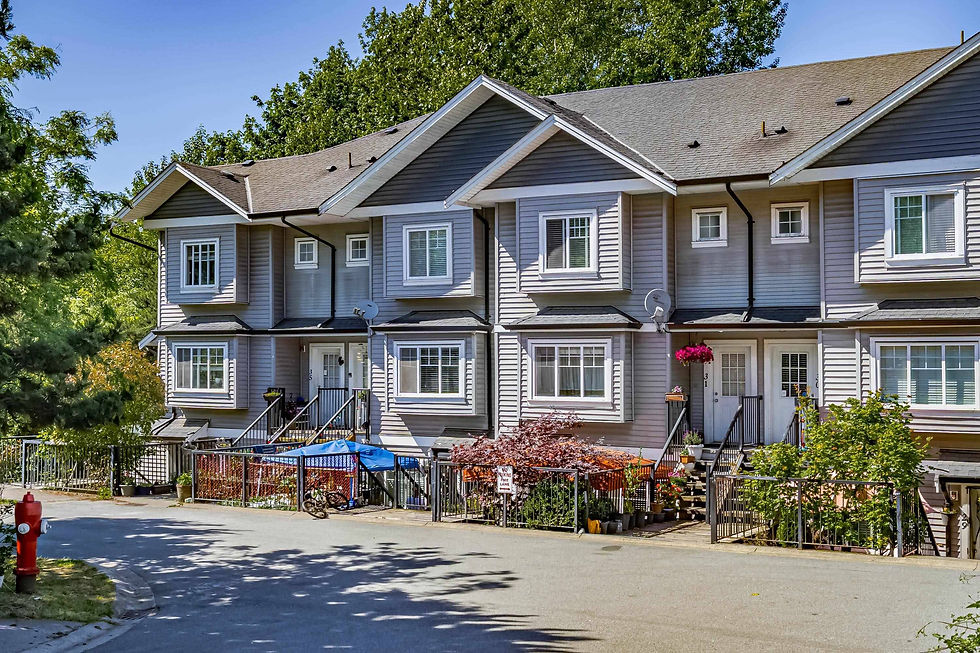Common Mistakes to Avoid When Buying Single Family Home
- priscillaking951
- Jun 11, 2025
- 4 min read
Buying a single family home is one of the most significant financial decisions you’ll make in your lifetime. It offers stability, privacy, and long-term investment potential. However, many first-time and even experienced buyers fall into common traps that can result in regrets and financial losses. This article breaks down the most frequent mistakes and how you can avoid them to ensure a smoother, smarter purchase.

If you're thinking about buying single family home, being aware of the pitfalls can save you time, money, and stress. From budgeting errors to skipping inspections, each misstep could delay your dream or turn it into a costly mistake. Let’s walk through the seven major areas where buyers often go wrong.
Not Setting a Realistic Budget
One of the biggest mistakes homebuyers make is failing to establish a realistic and well-researched budget. Many people overestimate what they can afford based on their pre-approval amount rather than their actual lifestyle and financial commitments. Remember, just because you’re approved for a certain loan amount doesn’t mean it’s wise to spend that much.
When buying single family home, consider all the additional costs that come with it—property taxes, home insurance, maintenance, and utilities. A clear budget that factors in these variables will help you avoid overextending yourself and ensure long-term affordability.
Skipping Mortgage Pre-Approval
Some buyers dive into the home search without first getting pre-approved for a mortgage. This mistake can result in disappointment and wasted time if you fall in love with a home you can’t afford. Pre-approval not only clarifies your budget but also makes you a more attractive buyer to sellers.
Moreover, not having a pre-approval can delay the buying process or cause you to miss out in competitive markets. In today’s real estate landscape, buying single family home without a pre-approval is like showing up to a job interview without a resume—it simply doesn’t show you're prepared.
Overlooking the Neighborhood
Many buyers focus so much on the house itself that they forget to evaluate the neighborhood. Elements such as school quality, crime rates, commute times, and future development plans play a major role in your living experience and the home’s future value.
Make multiple visits at different times of day to assess noise levels, traffic, and local amenities. When buying single family home, you're not just purchasing property—you're investing in a community. Ensuring it aligns with your lifestyle and values is essential.
Ignoring Home Inspections
Skipping or downplaying the importance of a home inspection is a critical error. Some buyers may try to cut costs or rush the process, but this can lead to unexpected repair expenses and safety issues after move-in. A comprehensive inspection reveals hidden problems such as plumbing leaks, electrical issues, or structural damage.
Use the inspection report to negotiate repairs or price reductions. Being informed gives you power in the buying process and helps avoid buyer’s remorse. Even if the home looks perfect on the surface, buying single family home without an inspection is a gamble that could cost you dearly.
Making Emotional Decisions
Falling in love with a home is normal, but letting your emotions guide your decision-making can be risky. You may overlook flaws or stretch beyond your budget for a property that "feels right." Emotional decisions often lead to regrettable compromises on location, quality, or affordability.
Stay grounded and stick to your list of priorities. Bring a trusted advisor or family member along for tours—they can offer objective opinions that balance your excitement. Buying a home should be a rational investment, not an impulsive move driven by staging or style.
Failing to Consider Future Needs
Many buyers make the mistake of purchasing a home based only on their current situation. Whether you plan to expand your family, work remotely, or age in place, your home should be able to accommodate these changes. Buying for the present alone could force another move sooner than expected.
Think ahead: Will you need extra bedrooms? Is there space for a home office? What about nearby schools or elderly accessibility features? By planning for the long term, you can avoid outgrowing your investment or facing expensive renovations down the line.
Not Using a Real Estate Agent
Some buyers believe they can save money by handling the purchase themselves, but real estate agents bring invaluable experience and negotiation skills to the table. An agent understands market trends, helps you avoid overpriced homes, and advocates for your best interests.
Especially when buying single family home, an agent can simplify paperwork, suggest trusted inspectors, and identify red flags that you might overlook. The seller typically pays the agent’s commission, so you benefit from professional expertise at no direct cost.
Conclusion
Buying single family home is a major milestone that should be approached with careful planning, research, and support. Avoiding these common mistakes can help you protect your finances, make smarter decisions, and enjoy your new home with confidence. From setting a realistic budget to understanding the long-term implications of your choice, each step matters in achieving a successful home purchase.
Don’t let preventable errors turn your dream home into a regretful decision. Work with professionals, do your homework, and stay focused on both present needs and future goals. With the right approach, you’ll not only find the perfect single family home but also make a wise investment that serves you well for years to come.









Comments